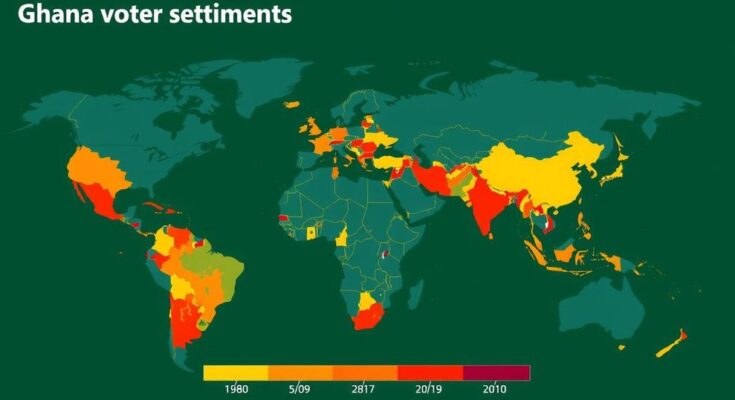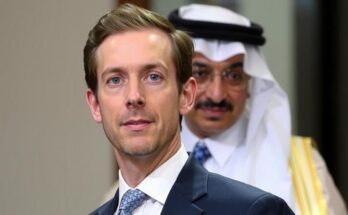Ghana is preparing for its ninth general election since the reestablishment of multiparty politics in 1992, with the NPP aiming for a third consecutive term. Economic challenges, including high inflation and youth unemployment, dominate voter concerns, as living standards decline amidst rising prices for essential goods. The economic situation has prompted government intervention from international lenders, raising the stakes for the upcoming December 7, 2023 election.
As Ghana approaches its ninth general election since the reintroduction of multiparty politics in 1992, voter sentiment is shaped by significant economic challenges. The ruling New Patriotic Party (NPP) seeks an unprecedented third consecutive term, but escalating inflation and rising unemployment could influence voter decisions. Amidst a backdrop where the cost of essential goods has surged – eggs and tomatoes now costing more than double compared to a year prior – many Ghanaians face deteriorating living standards. Inflation peaked at 54.1% in December 2022, leading to a substantial increase in poverty levels, according to the World Bank.
In light of these economic adversities, December 2022 saw Ghana default on its debt obligations, prompting negotiations with international lenders and engagement with the International Monetary Fund for a bailout. Ghana’s debt burden has increased over the past two decades, with over 70% of government revenue required just to service this debt by 2022. Concurrently, the unemployment rate has escalated alarmingly, particularly among youth; for individuals aged 15-24, the unemployment rate stands at nearly 30%. The engagement of this demographic in the electoral process is expected to be pivotal.
Beyond economic concerns, the mining sector, particularly gold, plays a significant role in Ghana’s economy, serving as a crucial foreign-exchange earner. Complaints regarding environmental damage from small-scale and illegal mining have arisen, with gold exports generating $5.2 billion in 2023. Further, Ghana maintains its status as a leading global supplier of cocoa, underlining its resource-rich economy that has witnessed a decline in extreme poverty over the last three decades. However, in recent years, the improvement in living standards has plateaued, posing additional challenges for politicians.
Ghana’s electoral history is characterized by closely contested elections that generally conclude peacefully, showcasing a commitment to democracy amidst a region still grappling with instability. Despite occasional legal disputes, election outcomes have typically been accepted by all parties involved. The upcoming election, set for December 7, 2023, will be crucial in determining how effectively these pressing issues resonate with the electorate.
Ghana’s political landscape has been marked by the re-establishment of multiparty democracy in 1992, leading to stable transitions of power and a solid electoral framework. Historically, the National Democratic Congress (NDC) and the New Patriotic Party (NPP) have alternated in governance, emphasizing the importance of economic performance in their electoral campaigns. The current economic struggles, characterized by high inflation and debt crises, place significant pressure on the political climate and voter perceptions ahead of the elections. Youth unemployment poses a considerable issue, highlighting a critical demographic that may impact the election outcome. Ghana’s rich natural resources, including gold and cocoa, have shaped its economy, yet challenges such as illegal mining and limited income growth showcase the complexities that candidates must address to secure voter support. The effective communication of these issues will be crucial in shaping the electoral narrative.
In summary, Ghana’s upcoming general election is poised to be influenced by a range of economic challenges, particularly inflation and unemployment, as voters seek immediate improvements in their living conditions. With the NPP aiming for a historic third term, the attitudes of younger voters and the external economic pressures will play integral roles. Ghana’s established democratic norms further emphasize the importance of these elections as the nation navigates its current economic landscape. The results, expected shortly after the December 7 election, will delineate the trajectory for Ghana’s political and economic future.
Original Source: www.bbc.com




